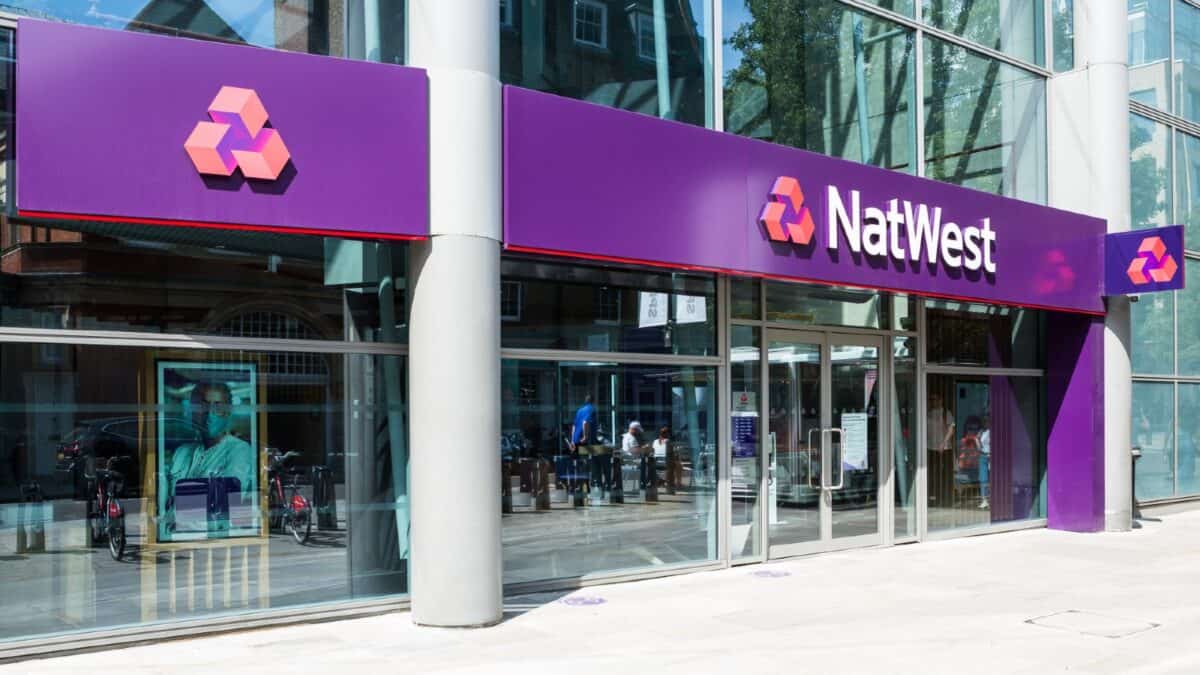Of all the shares on the FTSE 100, NatWest Group (LSE:NWG) could be the one that best combines growth and income, I believe.
According to Trading View, since October 2019, the banking stock ranks 33rd for share price performance and — based on its dividends paid since October 2023 — its yield is the 19th highest. Individually, these might not sound that impressive. However, when considered together, it could mean it’s an ideal stock for me to buy.
But is it? Let’s take a look.
Taking nothing for granted
Of course, the first thing to note is that past performance isn’t necessarily a good guide to what’s going to happen in the future.
And dividends are never guaranteed.
However, analysts are expecting the bank’s profits to grow. These ‘experts’ are predicting earnings per share of 46.8p this year (2024), which is forecast to increase to 48.3p (2025), and 55.6p (2026).
Based on the 2024 figure, the bank currently has a very reasonable price-to-earnings ratio of 7.6.
But this is similar to other banking stocks in the FTSE 100. And all five of them have been attractively priced for some time now. It makes me think that sector as a whole is out of favour with UK investors at the moment.
In terms of dividends, these same analysts are forecasting a payout of 18.3p this year. This implies a yield of 5.1%, comfortably above the FTSE 100 average of 3.8%. Looking further ahead, the payout’s expected to be 19.2p in 2025, and 22.1p, in 2026.
If these estimates prove to be correct, by 2026, NatWest will have increased its earnings by 16% and its dividend by 30%, compared to their 2023 levels. With figures like these, there doesn’t appear to be much to dislike about the bank.
Outlook
But there are risks.
It looks as though we’re transitioning to a lower interest rate environment. Although this should reduce the likelihood of bad loans, it will adversely impact the firm’s net interest margin.
Also, the bank derives most of its income from the UK. This makes it heavily dependent on the domestic economy, which is struggling to grow at the moment.
The government’s also looking for potential sources of revenue to help fill a ‘black hole’ in the nation’s accounts. This makes me wary that the Chancellor might target Britain’s largest banks with some form of windfall tax or other levy.
My verdict
However, NatWest appears to be in good shape.
It’s growing organically and through acquisition. In July, it acquired the mortgage book of Metro Bank for £2.5bn. A month earlier, it bought the retail business of Sainsbury‘s Bank.
And according to Refinitiv, 11 brokers rate the stock as either a Strong Buy or Buy, four are neutral and two are advising their clients to Sell.
But as much as I remain a fan of NatWest, I don’t want to invest.
I already have exposure to the sector through my shareholding in Barclays. Having two UK banks in my portfolio would be a little too risky for me.








